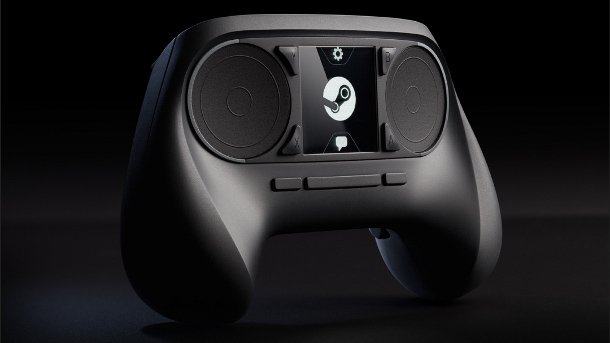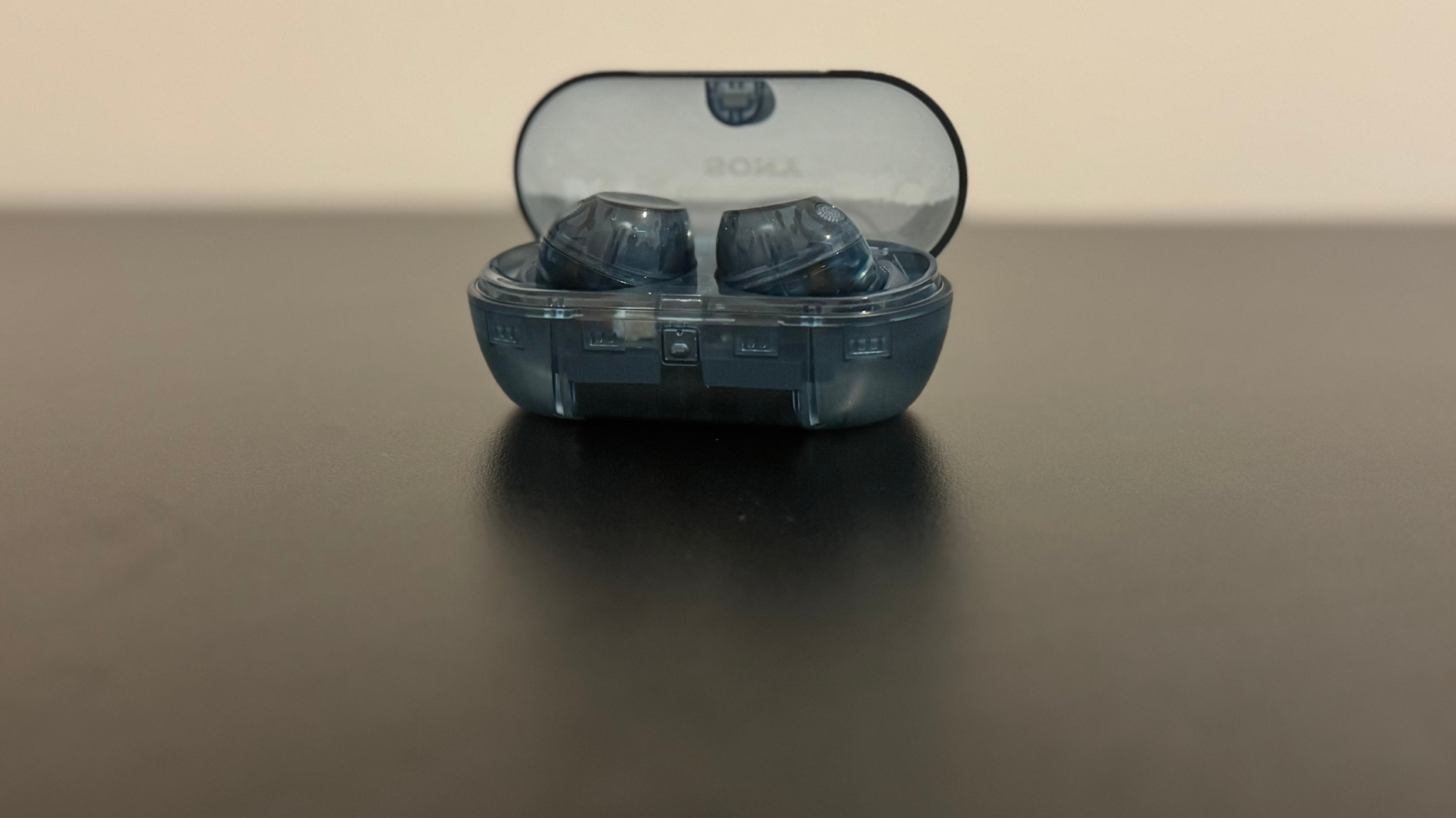Exploring Valve's masterplan: on SteamOS, Steam Machines and the future of the PC

Steam Controller: HUD, sweat and tears
That controller, eh? It's a big enough departure from the now standard 360 pad that I struggle to imagine how well it will work. Even so, it's a lot tamer than I was initially expecting, thanks to comments made about Valve's experiments with the relationship between game and player.
"Oh, I'm also thinking about biometrics," Newell told us back in 2010.
"So when you look at our games, more and more we have this representation of player state, where we think we know how you feel, essentially," he continued. "And with biometrics, rather than guessing, we can actually just use a variety of things like gaze tracking, skin galvanic response, pulse rate, and so on.
"We're a lot more excited about biometrics as an input method."
"Through combining those pieces of information, we can get a much more accurate indication of player state. So that's something we're super interested in. We've done some experiments in that space, and feel like there's some easy wins for customers and for developers."
Of course, being Valve, their plan for biometrics didn't end at the internal testing phase. Newell went on to tell Tom, "we think there are several people out there with interesting approaches on the hardware side [of biometrics]. Enough that we have confidence that the hardware side will be a sort of resolved problem in the not too distant future."
A wild flight of fancy, which soon afterwards they stopped thinking about, right? Nope. January, 2013 : "Maybe the motion stuff is just failure of imagination on our part, but we're a lot more excited about biometrics as an input method,” Newell said . “Your hands, your wrist muscles, and your fingers are actually your highest bandwidth, so to try and talk to a game with your arms is essentially saying, 'Oh, we're gonna stop using ethernet and go back to 300 baud dial-up.'"

It may contain a touchscreen and have fancy haptic feedback, but the Steam Controller announcement made no mention of biometrics. Given that, you could assume it was too difficult, or too expensive to fit inside a commercial controller. But if that is the case right now, it won't be forever.
Keep up to date with the most important stories and the best deals, as picked by the PC Gamer team.
"We plan to make tools available that will enable users to participate in all aspects of the experience."
As the announcement page claims: "We plan to make tools available that will enable users to participate in all aspects of the experience, from industrial design to electrical engineering. We can't wait to see what you come up with." In short, it's designed to be hacked, modified and iterated upon. As PCs with replaceable components, Steam Machines won't have a defined shelf life, which means we'll almost certainly see multiple revisions and new versions that build upon its controller's initial concept. Don't be surprised if one of them knows what makes you sweat.
Beyond that? One research project that's been teased on Valve employee Michael Abrash's Ramblings in Valve Time blog is 'wearable computing'. "By 'wearable computing' I mean mobile computing where both computer-generated graphics and the real world are seamlessly overlaid in your view," Abrash wrote in his introductory post . "There is no separate display that you hold in your hands (think Terminator vision)." Alternatively, if you didn't grow up in the 90s, think Google Glass.
Currently only at the R&D stage, Valve must still have some idea of how such a device could integrate into their existing products. SteamOS compatibility would seem like the perfect fit. It could easily show information peripheral to the game - everything from alerts, chat notifications and friends lists, to server browsers, Workshop lists and Steam guides. Expand out further, and it could offer video chat, or a Portal 2 style feed of your co-op partner's display, fitting nicely into Newell's previous server scenario.
On the next page: how SteamOS plays into Gabe's war against Windows.

Phil has been writing for PC Gamer for nearly a decade, starting out as a freelance writer covering everything from free games to MMOs. He eventually joined full-time as a news writer, before moving to the magazine to review immersive sims, RPGs and Hitman games. Now he leads PC Gamer's UK team, but still sometimes finds the time to write about his ongoing obsessions with Destiny 2, GTA Online and Apex Legends. When he's not levelling up battle passes, he's checking out the latest tactics game or dipping back into Guild Wars 2. He's largely responsible for the whole Tub Geralt thing, but still isn't sorry.

